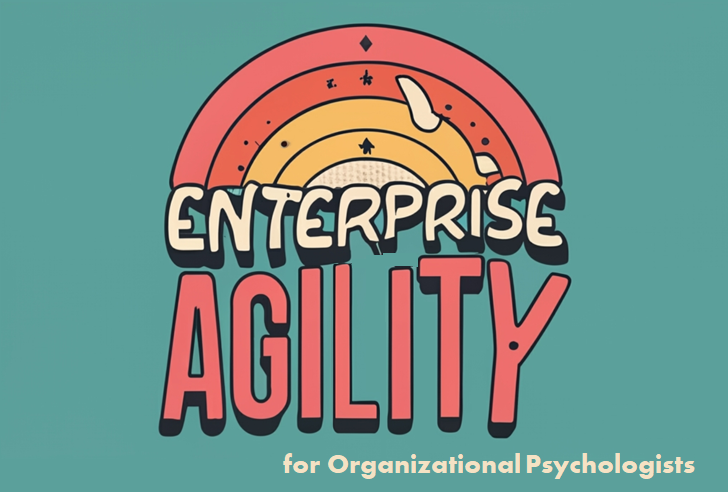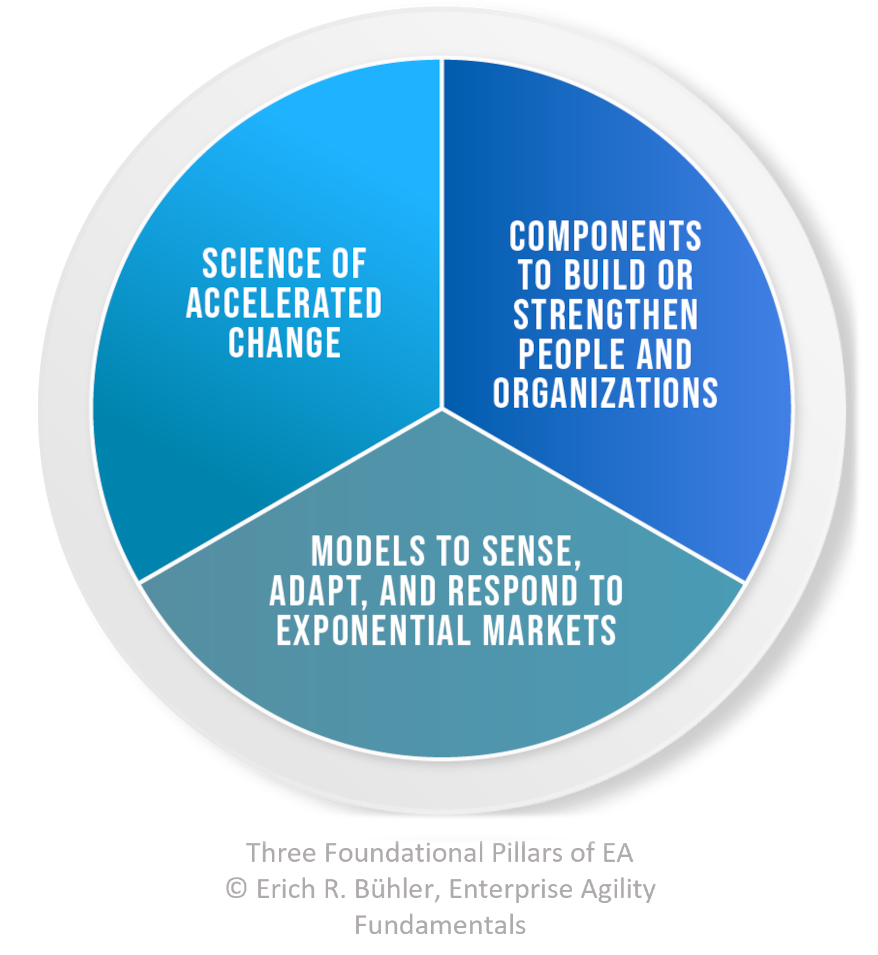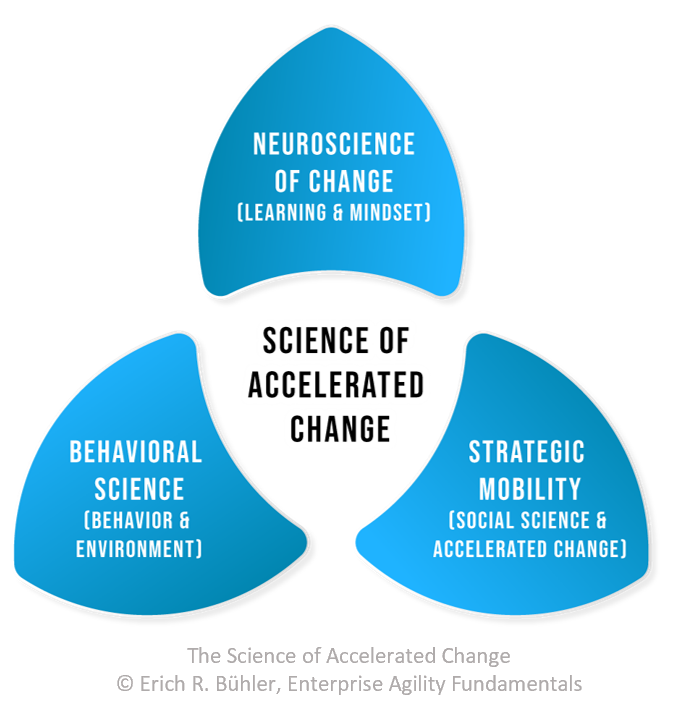Organizational psychologists have an essential role to play in helping companies navigate accelerated change and exponential markets. As you know well, implementing any major change initiative comes with many human and cultural challenges.

Enterprise Agility provides frameworks and models to strengthen both people and organizations for the new reality.

At its core, Enterprise Agility recognizes that technology alone cannot enable organizational adaptiveness—it requires evolving mindsets and leadership approaches. Leaders who embody intellectual humility, take a long-term perspective, and prioritize collective capabilities over individual genius tend to foster cultures where innovation thrives. Enterprise Agility includes the Science of Accelerated Change: Neuroscience of Change, Behavioral Science, and Strategic Mobility.
Psychological safety is also crucial. When employees feel free to voice concerns, take risks, and know their input is valued, they are more engaged and creative. As an organizational psychologist, you can guide leaders on building trust through transparency, modeling vulnerability, and empowering teams. The Enterprise Agility Universal Agreements provide a simple way to ensure all employees feel seen, heard, empowered, and included during times of change.

Another key area of Enterprise Agility is nurturing neurodiversity. Different thinking styles, perspectives and abilities enable groups to solve problems more innovatively. An overemphasis on conformity can stifle the diversity of thought needed to adapt. Assessments can reveal team members' complementary strengths.
Finally, the TriValue Company model balances customer value with company value and workforce wellbeing. It moves beyond customer-centricity to a more holistic approach. When employees feel their wellbeing is prioritized alongside profits, they are more engaged and committed.
As a psychologist, you recognize that humans need purpose and meaning beyond financial incentives. Enterprise Agility frameworks provide the necessary structures for organizational adaptability, while never losing sight of human needs.
